If you decide to major in Philosophy because of the high GRE and LSAT scores of Philosophy majors, or because the unemployment rate for B.A. Philosophy grads is “lower than the national average and lower than that for majors in biology, chemical engineering, graphic design, mathematics, and economics,” then you might be eating the menu instead of the meal. The substantial and lasting benefits of studying philosophy lie instead in developing skills of discussion, skills of clear writing, skills of being able to be the one in the managerial meeting room, “You all have been talking about how best to carry out this initiative. But can we first clarify WHETHER and WHY we should be doing this?” This is the kind of strategic thinking that, sure, is valued by profit and non-profit organizations. But our point here is that it’s also a key skill in building values that are authentically and thoughtfully one’s own. And who wouldn’t want that?
Graduates of the Department of Philosophy have gone on to pursue graduate degrees in many different fields.
Among their chosen institutions are:
- Claremont University
- Johns Hopkins University
- Loyola University
- Trinity College
- University of Hawaii
Submit an Alumni Update to mstaber@smcm.edu >>
Alumni Updates:
Sarah Aaserude ’92
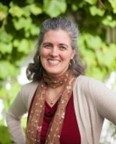
For the last 10 years I have been immersed in the world of educational assessment, in particular helping develop item banks and computer-adaptive interim tests for the K-12 market. I am currently a Senior Content Manager at Northwest Evaluation Association in Portland, Oregon. Through graduate work in philosophy and then education, teaching in China (1997-98) and in Maryland (1998-2004), the abilities to analyze and evaluate that were honed during my education in Philosophy at St. Mary’s have led me to be able to see more and to see more clearly than others often can. I also learned to change my thinking when the evidence shows I have been wrong, a skill I have found rare and useful. On the personal side, these skills have helped me weather late nights of research and making difficult decisions that come with having one of our children have a rare genetic disorder. Sifting through fact, opinion, and limited data while balancing the necessary with the good is a daily part of my life, and one that I know I am better prepared for through the work in Philosophy I did at SMCM.
Patrick Allen ’05
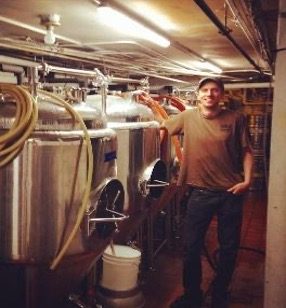
I am currently the head brewer at Keg & Lantern Brewing Co. a brewpub in Brooklyn NY. Prior to this I managed Ken Allen Studios, a fine art printing and digitization studio in Washington D.C. and Brooklyn. When I graduated from St. Mary’s, I managed a two year Aerial Photography mission across North America as a contractor for Garmin and Marinas.com. Not only did my degree in Philosophy help me to obtain these positions, it gave me the confidence to pursue them. By developing a strong ethical foundation and understanding of others’ perspectives, it set me up to communicate effectively, problem solve and tackle challenges that both work and life have presented.
Chloe Bean ’13
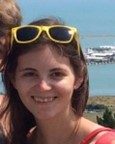
Following my graduation from St. Mary’s, I spent the spring of 2013 as the legislative intern for the Maryland Energy Administration (MEA) during Maryland’s legislative session. After taking the summer to travel, I returned to MEA to run the Commercial and Residential Clean Energy Grant Programs, which distribute grants throughout the State to support the installation of clean energy. In the years since, I expanded my role to include the management of additional programs and initiatives to support Maryland’s clean energy industry before becoming MEA’s Procurement Officer.
The writing and argumentation skills that I acquired during my time in the St. Mary’s philosophy department have been irreplaceable. Working in state government, especially in procurement, requires interpreting and working within Maryland’s laws and regulations on a daily basis. Spending years analyzing philosophical texts has been excellent preparation for analyzing laws and regulations and using them as support in various documents.
Ali Beheler ’99
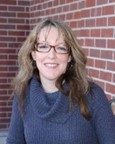
After St. Mary’s, I worked for three years in Washington, D. C. as a web and print publications editor. I then earned an MA from Penn State University and a PhD from DePaul University, both in philosophy. I am now Associate Professor of Philosophy at Hastings College in Hastings, Nebraska.
In my non-academic job, the creative and critical thinking skills I honed in philosophy coursework helped me to look for challenges and quickly pick up new technical skills, like web development and grant writing, that extended beyond my job description and earned a fast promotion. On the academic side, my training and relationships at St. Mary’s helped me to get into an excellent graduate school. The variety of courses I had taken from a number of traditions made me an attractive candidate, and served me well as a student and, now, as a teacher.
Daniel Castle
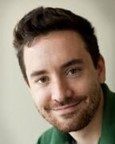
After graduating from SMCM in 2010, I was admitted to the graduate program in philosophy at Brock University in Ontario. I went on to complete my MA in philosophy in 2012. Afterwards, I worked at a computer company in Maryland for a couple of years while also writing papers and presenting at conferences as my schedule permitted. Fascinated by Nietzsche’s Thus Spoke Zarathustra, I decided that I didn’t want to spend my entire life on the mountaintops of academia, so I resolved to go out into the village of the world. I enlisted in the US Army in late 2013 to work as a linguist, for which I sometimes need to brief others who are not subject matter experts. To do this effectively, one needs to break down the information, find what is essential, and find a way to convey that to others. This is really no different than introducing a concept in a philosophy paper or as a part of a presentation-a skill I developed in my Philosophy courses at St. Mary’s. In fact, in all of my work experiences, my philosophy training has proved invaluable, having granted me a solid foundation in analysis and critical thinking. In these ways, I see my successes as fundamentally linked to my education in philosophy. While I very much enjoy my work, I do plan on returning to academia in the future.
Ali Sharp Church

It took me a decade after graduating from St. Mary’s to realize I had found my vocation. I am a rural hospital and hospice social worker in Montana; the foundation of my work is rooted in the ideas of Chomsky, Aristotle, Buddha, and St. Augustine. As a philosophy major I learned to read, assess, and articulate ideas of how one ought to live. Now I’m doing my best to live up to those ideas on a daily basis. My philosophy degree prepared me to be with those who are dying and to explore their physical and existential conundrums, to facilitate ethics meetings about patient rights, and to confront real-life challenges with a curiosity that results in a love of lifelong learning.
Paul Clark ’05
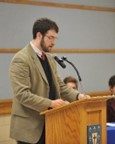
Since St. Mary’s, I’ve been teaching English at my alma mater, DeMatha Catholic High School. Over the course of five summers, I earned my M.A. at Middlebury College’s Bread Loaf School of English. As I have continued in the classroom, both as a teacher and as a student, I am often grateful for the time I spent learning from the SMCM Department of Philosophy.
One professor would spend an entire class, or ask us to write an entire paper, on one of Hegel’s or Kierkegaard’s sentences. This close reading formed the foundation for how I would examine all texts, and became a model I try to pass on to my students. Furthermore, the accessibility of the Philosophy faculty allowed for the development of personal relationships that gave me a beautiful sense of what the teaching life is like. They say that a teacher takes all their former teachers with them into the classroom, and I think of DeMatha’s 208 as a wonderfully crowded place.
But a teacher also needs practice, and Professor Schroeder gave me the opportunity to practice when I TA-ed for his Intro to Philosophy course. Then Professor Taber mentored me as I organized a reading group of students around “contemporary philosophical fiction.” At the final session, when the professors came to visit, Taber asked, “Could we consider all literature to be philosophical?” As I have led my English students on an exploration of both popular and canonical texts, you could say that my career is partially an attempt to answer that question.
Corey Cook ’93
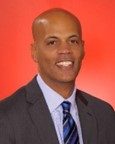
Immediately after graduating from St. Mary’s, I did a cross-country trip to California and back, and moved to D.C. For work, I did some waiting tables and office temp work. (It was the recession of the early 1990s.) Very quickly, though, I joined the IT field working in database and web development. I then quickly moved into project and business management consulting for several mid to large IT and telecom companies. After the year 2000, I switched to my current profession of health IT management, and I have been the CEO of a health IT services company for the last decade.
The philosophy courses I took at St. Mary’s have aided me throughout my career by providing me with the invaluable skill of critical analysis. This skill assists me with getting to root causes of business and system issues. It allows me to take complex concepts and succinctly explain them to all levels of people across different business organizations (technical, management, etc.). Critical analysis has provided me with a foundation for persuasive presenting and writing, which is imperative in order to maintain ongoing business growth and development.
Matthew J. Costello ’01
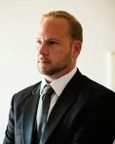
Upon graduation I began working for the US Department of the Interior (DOI) as an Ethics Advisor eventually serving as the Ethics Advisor to the Secretary and Deputy Secretary of the Interior. In 2009 I moved to the Office of Collaborative Action and Dispute Resolution (CADR) within DOI where I currently serve as the Acting Director. My office sets the policy for, and ensures the procedures and resources are in place to support, collaborative problem solving, public engagement, and conflict management processes within a Federal Agency which manages 1 out of every 5 acres of land in the United States. Throughout my Federal career I have found the analysis, creativity and flexibility my philosophy coursework required and instilled within me to be my greatest asset.
Roxane Crowley ’00
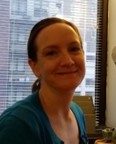
Not long after graduation, I was fortunate to find a position directly related to my year-long senior project (the St. Mary’s Project, or SMP), which focused on the ethics of care for the dying. I worked for a palliative care physician whose research focused on hospice, bioethics, and end-of-life care decision making. My SMP prepared me for the topics we studied and the issues our research participants were confronting. After nearly four years of working on big-picture projects, I decided to focus on direct service. I attended law school and am now a public interest attorney, providing legal services for the elderly.
The extensive writing, analysis, and argument of my philosophy coursework equipped me well for law school and for my legal career. The philosophical concepts and theories we studied help me to process the systemic challenges of working with the poor. There are countless people who need free legal help. Should our scare legal resources be focused on justice for a few with the hardest, most egregious cases, or do we handle easier, less compelling cases so we can serve more people? In reality we do a mix of the two, but the theories of Mill and Kant among others help to me analyze and prioritize the challenges I see daily at work.
Nicole Deming ’01
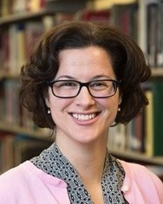
Did environmental education for elementary school groups in Cuyahoga County, Ohio for two years. Completed a Masters Degree in Bioethics at the University of Washington School of Medicine (Seattle) in June 2005. Presented a paper on Relational Autonomy and Ethical Dilemmas that arise in the care of patients with Multiple Sclerosis at the annual meeting for the Consortium of Multiple Sclerosis Centers in Orlando, Florida. Got her law degree in 2008 from Case Western Reserve University in Cleveland, specializing in Health Law and in International Law. Now is assistant professor of bioethics at Case Western’s School of Medicine. Nicoledeming at yahoo.com.
Kristin Effland ’02
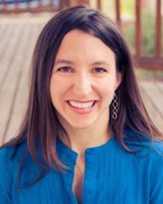
Worked for 2 years for Gender Public Advocacy Coalition in D.C. Then moved to Seattle to enroll in midwifery school, starting in 2005. Now at Bellingham Birth Center, in Washington. And on the board of directors of the Midwives Association of Washington State.
Billy Friebele ’00
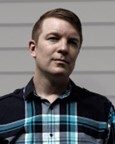
After studying philosophy at St. Mary’s College of Maryland, I worked odd jobs for four years before going to graduate school at the Maryland Institute College of Art in a low-residency MFA program. I then returned to St. Mary’s as a sabbatical replacement Art professor, which led to a full-time teaching position in digital art. I am now Assistant Professor of Fine Arts at Loyola University of Maryland in Baltimore.
My year-long senior project (the St. Mary’s Project) combined my philosophy major with sculpture and installation. I built a 30’x30’ spiral bamboo hut in the woods adjacent to campus, which was based on ideas put forth by philosophers Gaston Bachelard, Martin Heidegger, and Lao Tzu among others. The philosophy major at St. Mary’s College of Maryland challenged me to develop important questions, which continue to drive my artistic practice. Contemporary art is deeply engaged with philosophical discourse, and I continue to develop a praxis that examines conceptual issues through material investigations.
Guinee Gaginis ’03
After graduation, worked in the office of Senator Dorgan on the Hill. Then worked on health care issues as a Legislative Assistant with the Sheridan Group, in D.C. Then I resigned from my lobbying position two weeks before the 2004 elections, and went to work for the Knowles campaign in Anchorage, Alaska. (My nostrils would freeze together in a five minute walk to headquarters.) I flew out west in January, and played electronic music in San Francisco, later joined a hip hop band as a bassist in Sacramento. But it was a bit too laid back for my taste.
In May 2005, I moved to Columbia Heights with a friend from Iowa City, and then in winter to Folly Beach, in Charleston, S.C. It’s like St. Mary’s, with more hippies.
Ryan Grim ’00
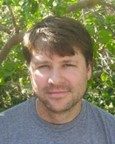
Since graduating I’ve worked in an awful lot of different fields as I tried to find the one that fit me — finance, education, politics and of course plenty of food service, until I landed on journalism. In each of them, my training in philosophy — how to think; how to question, sharpen and express a thought — was (perhaps surprisingly) useful, flexibly serving me well in different ways. Journalism is in many ways the opposite of philosophy: we write our stories in water, someone once said (Mencken?). But an ability to see beyond the day-to-day is key when it comes to separating forgettable from memorable writing. Over the last few years, I’ve also got more involved in cable punditry, where producers sometimes give you a minute’s notice about what the topic of the segment will be (and we’re surprised so much of such punditry is useless!). Being able to think quickly and frame an issue is crucial. In 2010, I became the Washington bureau chief of the Huffington Post, an office that grew to some 50 people. I am now the D.C. bureau chief of The Intercept. Studying and thinking about ethics, the good life, meaning, and all the rest of it has, finally, helped me immensely when it comes to thinking about how to manage, and how to draw the best out of people in the right, sustainable way.
Rob Hendricks ’01
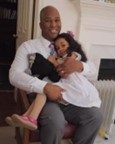
After I graduated St. Mary’s, I worked as a juvenile probation officer for about a year and a half. During that time I decided that I wanted to attend law school. After graduating law school and passing the bar exam, I worked as a prosecutor for five years. Currently, I am practicing workers’ compensation law at a firm in Ellicott City, Maryland.
The objective reasoning skills I developed in St. Mary’s philosophy major continue to serve me on a daily basis. A lot of what I do is to try to uncover the truth based on the subjective evidence presented to me. I think that the rigorous discourse and dissection of complex theories really sharpened my ability to cut to the heart of the issue and focus on what is important in a given situation. Philosopher Michel Foucault’s work Discipline and Punish had a very strong influence on me as a prosecutor in helping to determine what would be a meaningful sentence.
Eric Herrmann ’99
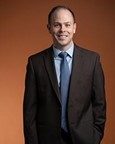
I’m an associate at Klein Hornig LLP, one of the nation’s premier law firms concentrating exclusively on affordable housing and community development. My work involves structuring and closing complex transactions that develop and preserve affordable housing and revitalize communities for clients ranging from neighborhood community development corporations and tenant associations, to large housing authorities and national developers. My philosophy coursework equipped me with analytical reasoning and critical thinking skills that I use every day as a lawyer, while instilling a commitment to social justice that led me to seek mission-oriented work.
Prior to joining Klein Hornig, I attended Harvard Law School, where I served as co-chair of Harvard Law School’s Tenant Advocacy Project and as a student attorney at the Wilmer Hale Legal Services Center’s Housing Unit. I developed my interest in affordable housing and community development while working for the National Housing Trust, a nonprofit dedicated to preserving and improving affordable housing. Before that, I worked as an English teacher in Shanghai and at a camp for Burmese refugees in Thailand. I married fellow St. Mary’s graduate, Kate Greene ’00, in 2005 and our beautiful daughter, Bea, was born in 2011.
Timothy R. Homan ’00
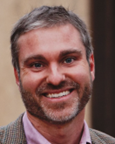
A week after graduating from St. Mary’s I was in Beirut working as a reporter for The Daily Star, an English-language newspaper. After that I served for two years as a Peace Corps volunteer in Senegal before moving back to the States, where I found myself working at a law firm whose attorneys constantly reminded me that philosophy majors score the best on the LSATs. Instead, I opted for a joint master’s degree – journalism and international relations – and have since reported for Congressional Quarterly, Bloomberg News and The Fiscal Times. I’m now an editor at Morning Consult, a Washington-based news organization that covers the intersection of industry and policy, with a focus on Congress. In all I have done since, the strong writing and analytical skills that I developed as a Philosophy major at St. Mary’s have been immensely useful.
Karen Jarboe ’06
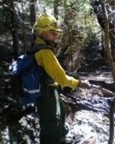
I am currently a Park Ranger with the Maryland Park Service and a certified wild land firefighter with the Maryland Wildfire Crew. I also occasionally am flown out west to help fight wildfires there—for example, in the Iron Alps Fire Complex of 2008, and the King fire of 2014, both in northern California.
I am also the front woman of a sea shanty band, which interprets the historical working songs of the age of sail. I am currently working on an MS in Environmental Policy and Management and hope to one day manage a large nature preserve. In addition, I do tutoring in guitar, in philosophy, and in general writing.
My degree in philosophy has prepared me in many ways for my work as a park ranger and historical interpreter. Through philosophy I’ve been able to concisely and accurately interpret information for the public in an effort to connect people with nature and history. It has also significantly prepared me for graduate school. Despite my current focus in the science field, my philosophy degree has given me the skills to analyze and think critically about data and scientific subjects.
Kathleen Creamer Klemm ’99
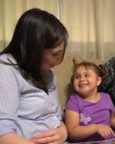
I’m the Managing Attorney for the Family Advocacy Unit at Community Legal Services of Philadelphia having graduated from UNC’s law school. My career-long passion has been helping incarcerated mothers and their families. I can’t imagine a better starting place for my career than my philosophy classes at St. Mary’s. As a student, I was encouraged to think critically, hone my arguments, and understand diverse perspectives—all skills that have been invaluable in my advocacy work. Most importantly, though, I was encouraged to go beyond the classroom to translate my thoughts about justice and what matters in life into lived experience.
Matt Kopec ’00
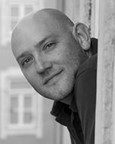
After graduation, I spent some years working at Outback Steakhouse, traveling the world, and just generally growing up. But I couldn’t stay away from philosophy. I took some graduate classes at College Park, and then got an M.A. from Virginia Tech and a Ph.D. from UW-Madison. After graduate school, I taught courses in logic, ethics, and philosophy of science at CU-Boulder. Then I held a research postdoc at Northwestern University, and I am now a Research Fellow at the Centre for Applied Philosophy and Public Ethics in Canberra, Australia. I spend my work days reading, discussing, and writing on topics like the biological basis (or lack thereof) of human racial classification, the ethics of using race in law enforcement, the effects of self-fulfilling prophecies in the sciences, and effective group judgment and decision-making.
My life would be drastically different had I not listened to my older brothers and enrolled in Professor Taber’s Introduction to Philosophy – the course that started me along this journey. Doing philosophy for a profession isn’t for everyone. But it’s clearly been the right path for me.
Rachael Shapiro Lipton ’99
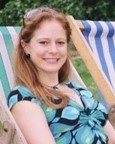
After St. Mary’s, I went on tour with a punk rock band, waitressed and rock-climbed in Colorado, and completed a graduate program in journalism at the University of Colorado at Boulder. I moved to New York City, where I live with my musician/composer husband. I’m the copy chief of features and entertainment at the New York Post, and I am happy.
As an editor, I have the pleasure of coexisting in the world of imagination and silliness as well as the grounded world of grammar and lawyers – working creatively and analytically every day with headlines, images and words. Majoring in philosophy at SMCM gave me the skills to use logic systematically and access the deepest parts of my imagination. Specifically, the philosophy of religion course taught me the importance of being a spiritual person. Understanding the role of religion in my life has kept my moral compass guiding me toward consistently striving to be a better friend, daughter, wife, boss and employee. Once I get those down, I intend to be kind even to strangers!
Markus McLendon ’94
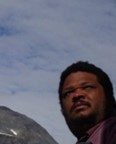
The Power of a Question
After leaving St. Mary’s with a major in Philosophy I did a number of things. I made pizza for Russians, acted as a tech for a national government agency and even for a time wondered if I should have stayed in Business Education. But then most significant “thing I did” after St. Mary’s was to become a Special Educator. Over time I became a school administrator of non-public schools. I found this to be immensely rewarding in that I was able to build bridges between people of various backgrounds (socio-economic, religious, education etc.) and create living teams that responded to the changing needs of the school organism and the students that we served.
My experiences in Philosophy prepared me well for this role as I learned the power of a question. In my coursework and conversations with fellow philosophers, I learned that the question “Who do you want to be?” was much more important than “What do you want to be?” I learned that when you approach a problem the largest part of the solution starts with the question: Why? Why is this a problem? Sometimes the problem is within ourselves, and we have to ask: Is this the world as it IS or the world as I WISH it to be? I learned that many of my philosophical heroes had feet of clay in some area or philosophical process: Nietzsche, Rand and others. I learned that it is okay to be wrong. When new information arises, change your map; the road you are on may be a dead end. You can’t be “married to being right.” Flexible thinking is more important than being right or a keeper of knowledge. Being able to access the world with truth and not insisting that it be my truth prepared me to be an educator, a leader and most personally rewarding, a teacher of teachers. Philosophy at St. Mary’s taught me to follow truth whether it came from someone I supervised, one of my students, a custodian, a parent, or a person off the street. To paraphrase a famous TV show: “The Truth is out there…but are you searching for it?”
Daniel Miller ’04
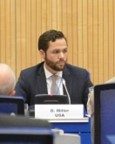
Daniel is a Program Coordinator with the U.S. Department of State’s Partnership for Nuclear Security, a global capacity building program that strengthens security procedures at foreign nuclear facilities to mitigate the risk that terrorists could acquire nuclear material. Previously, he served at the U.S. Department of Energy in Washington, DC and the U.S. Consulate General in Istanbul, and taught English as a Fulbright Fellow in Ankara, Turkey. Daniel uses the essential skills he developed as a Philosophy major – of analyzing complex issues and articulating differing viewpoints – in his everyday work.
Gabriel Pinilla ’99
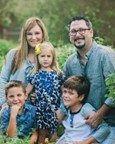
Upon graduating with my philosophy degree in May of 1999, I was disappointed to find that all the big Philosophy companies had just gone out of business.
I heard some variation of this joke often in the years after SMCM. Eventually, I took the joke back, using it to get a laugh in interviews with law firm hiring partners.
In law school you are taught to “think like a lawyer.” My philosophy coursework at SMCM gave me a head start in this respect. I was trained in critical analysis of complex issues; breaking down abstract concepts—like fairness, right, the good—into their component value elements in the context of a fact pattern, then presenting the analysis in written or spoken word. These core skills are applicable to many fields, but absolutely essential to being an effective lawyer.
I live in Tampa Bay where I practice business law and litigation, and together with my wife, Jodi, am the proud parent of three crazy kids who love visiting St. Mary’s each summer.
Greg Poling ’07
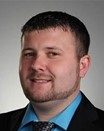
I am a fellow in the Southeast Asia chair at the Center for Strategic and International Studies, a non-partisan think tank in Washington, DC, where I manage research projects aimed at guiding U.S. foreign policy in the Asia Pacific at large and Southeast Asia in particular. My work seems at first blush decidedly non-philosophical, but my background in philosophy has given me some important legs up in my field. The logic and critical thinking skills I learned as a philosophy major have proven invaluable, both during my graduate education and in the think tank world. And without the background in ethics I gained at SMCM, I probably would not have decided to pursue international relations as a form of public service in the first place.
Anna Ranta ’94 and John Ranta ’97
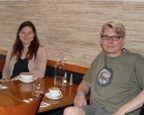
I started out as a biology major and later went on to become a neurologist. I picked up a major in philosophy on the way purely out of interest without much plan to make it a career. Then my philosophy degree lay somewhat dormant for a number of years although I am sure it has shaped me as to the overall person I have become over the years. Now that I hold a high level medical administration role (Executive Clinical Director of Medical Services at New Zealand’s capital’s major hospital), I find that I draw upon my philosophy background more frequently than my technical medical knowledge. Every day I make difficult decisions that are escalated to me because everyone else finds them too hard. I lie awake at night wondering what Kant would do and what Mill might have to say about it. I also consider Sartre, Nietzsche, Hume, and Dostoevsky and not infrequently turn to the I-Ching for just another perspective on things. Even during my clinical work I draw upon philosophy; nothing has prepared me better for counseling the dying than my familiarity with Heidegger and Tolstoy. So, while it all seemed just like a bit of fun some decades ago I would have to say that completing a major in philosophy has been one of my most valuable and prized decisions in my life.
My husband, John, another St. Mary’s philosophy grad (whom I met several years after leaving St. Mary’s), has had a very similar experience. He went on to do a Masters in Philosophy at Georgia State and then became a stay-at-home dad for a few years. He now is the co-president of the New Zealand Green Party and our jobs are remarkably similar: high-level conflict resolution, complex people management, policy making, and trying to effect some positive change. We both make tough decisions and draw upon our philosophical backgrounds in hopes to make the world a better place.
John Ranta
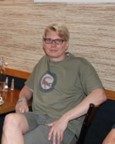
I went on to get a Masters in philosophy from George Statue University, then went to work in IT, and found that the exposure to logic and structured thinking was consistently of great benefit in programming and problem solving. After moving to New Zealand I became politically involved and am now the president of the NZ Green Party. In this role my philosophy background has helped me to clearly express complex and nuanced thoughts in writing as well as hold my own in challenging verbal debates. It’s also placed at my disposal numerous conceptual distinctions and ideas from the history of philosophy that have proven useful in cutting through the miasma of obfuscation that surrounds the world of politics.
Nathan Smith ’13
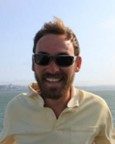
A. I’ve been keeping quite busy since graduation. Work and travel have been my priorities. Since May of ‘13 I’ve been all over the United States, England, Ireland, and New Zealand. For the last year and a half I’ve managed procurement and logistics at a Columbia, MD company named Friends & Farms. We work with local and regional food producers of all types to deliver bundles of meal-ready groceries to our customers in the Baltimore area. It’s a great job. I’ve learned so much about food and cooking, as well as managing myself and others.
B. Had it not been for my SMP I wouldn’t be working where I do. My SMP was a look at the moral structure and teachings of the Slow Food Movement and Organization. Although I don’t get to apply much Philosophical thought to my daily routine, the research required for my SMP was my introduction to food systems, policy, and history. I draw on that knowledge every day at work and no doubt will do so in the future.
Adrian Tyree ’06
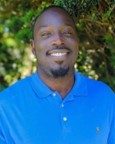
Since my graduation, I have worked primarily in the direct care, human services field. I’ve held various community-based and management positions. Most notably, in September 2009, I began public service with the Maryland Department of Juvenile Services. I worked for five years as a probation officer/case management specialist, before being promoted to management in February 2014.
In April 2011, I began training in Krav Maga, an Israeli martial art and reality-based self-defense system. Since March 2013, I’ve been a certified Krav Maga instructor with Krav Maga Maryland.
How has my St. Mary’s Philosophy course work helped me? I would say that my professional life after SMCM encompasses sharing the values I received as a Philosophy major (and Religious Studies; I was a double-major). Respecting others’ humanity. Asking the difficult questions. Identifying problems and then actively being a part of the solution. I live these values when I teach self-defense and in my public service. I’ve helped those with mental and emotional disabilities to improve their life balance, and I contribute to public safety and the rehabilitation of delinquent youth through DJS.
Rob White
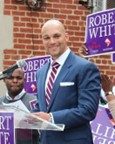
From St. Mary’s, I went on to law school and then into politics. After spending several years working on Capitol Hill as Counsel to Delegate Eleanor Homes Norton, I ran a hard-fought political race for DC Council At-Large and now serve as Director of Community Outreach for DC Attorney General Karl Racine. More than any other course of study, my philosophy major pushed me to move from socialized concepts of morality and idle altruism to the challenge of doing actual good. My personal politics, refined in my small philosophy classes, dictate that good is not in our intentions, but in how we actually help people. Once out in “the real world,” where the pace and consequences are swift, it can be nearly impossible to grapple with these foundational beliefs. So, I can’t think of a better major for building strong and analytical public servants who are able to think through the noise and pressures of popular rhetoric to find meaningful ways to help people.
Scott Zuke ’09

Although I could not have known it at the time, my year-long senior project (the St. Mary’s Project) in Philosophy, which was on democracy and the ethics of global development, opened my career path for me. After St. Mary’s I continued my studies on this topic by getting a Master’s degree in the University of Maryland’s School of Public Policy. For years now, I have written, and still to this day write, a monthly column covering international political issues, often with a philosophical angle, for a local newspaper back home. I also served as a communications intern with Freedom House, an international organization that promotes democracy. I was able to leverage my writing, technical skills, and interest in foreign affairs to land a job at The Middle East Institute, a non-profit think tank in D.C. I now direct the communications department, managing the organization’s website, media relations, marketing, scholar interviews, and A/V production. Looking back, it suddenly all makes sense. Thanks, SMP.
